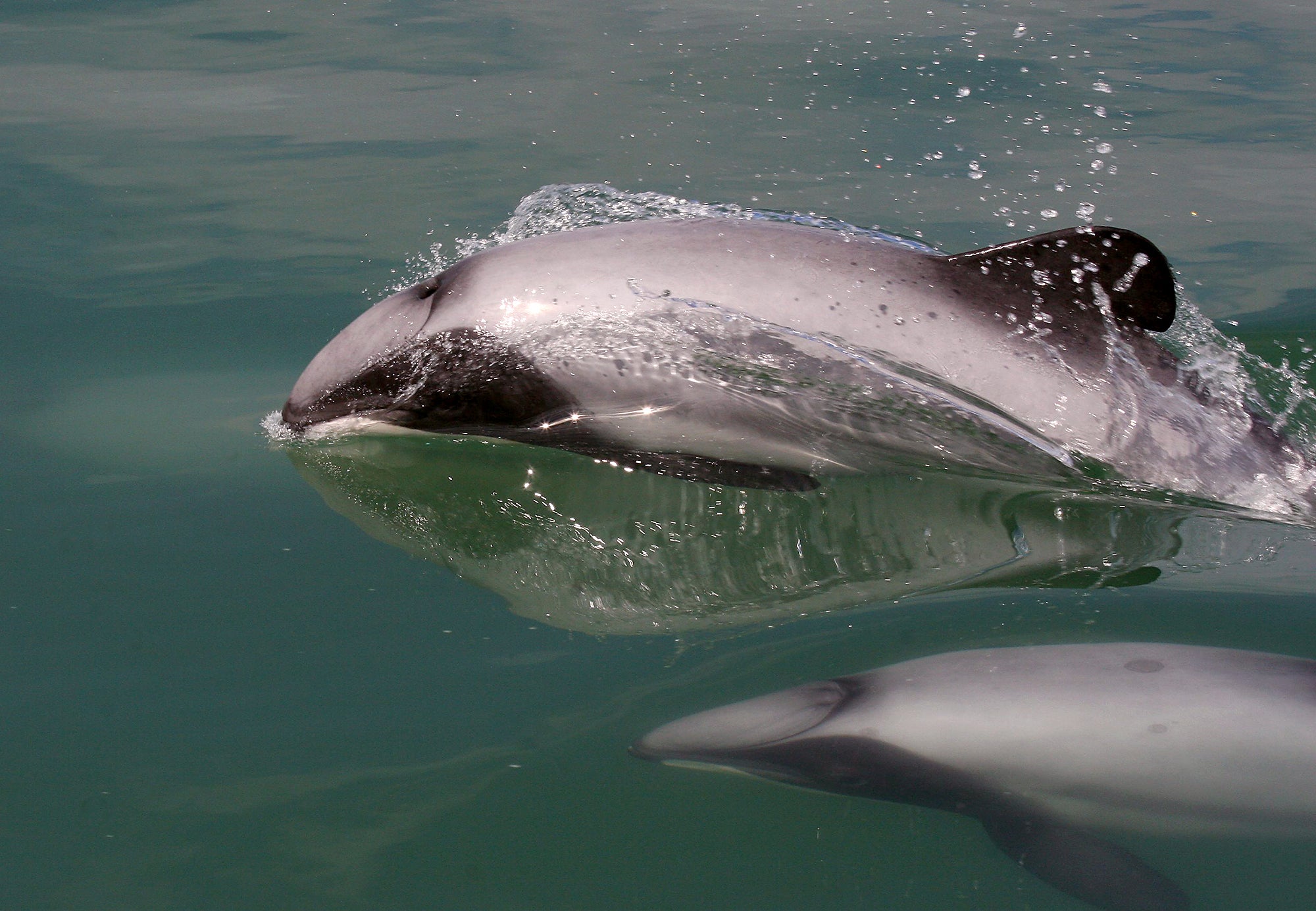Group files lawsuit to protect rarest marine dolphin on Earth
Fewer than 50 Māui dolphins thought to exist, harmed and killed by fishers in New Zealand waters
Contact
A New Zealand environmental group, represented by Earthjustice and Law of the Wild, filed suit today against U.S. fisheries regulators to protect the rarest marine dolphin in the world.
The grassroots group, Māui and Hector’s Dolphin Defenders, seeks to enforce the U.S. Marine Mammal Protection Act, which requires the U.S. government to ban seafood imports from any foreign fishery that excessively harms marine mammals. The suit was filed in the United States Court of International Trade.
The suit contends that New Zealand fishing fleets are driving the critically endangered Māui dolphin to extinction, with estimates that only approximately 30 to 50 individuals remain worldwide. The fleets operating along the West Coast of New Zealand’s North Island don’t intentionally catch Māui dolphins, but the marine mammals get caught when fishers target commercial seafood species in large nets that hang in the water for days or drag through the sea, scooping up everything in their path. Even if fishers free dolphins from the nets before they drown, they can suffer serious health impacts from not being able to surface to breathe because nets confine them.
“With such a critically low population, the Māui dolphin cannot afford a mistake by the U.S. agencies charged with ensuring that United States actions don’t contribute to its decimation,” said Earthjustice attorney Natalie Barefoot. “The species certainly cannot afford repeated mistakes.”
In 2022, the United States Court of International Trade banned some New Zealand seafood imports to America after the marine-protection group Sea Shepherd filed suit, showing harm to Māui dolphins. Despite the incremental protections put in place since that litigation began, more Māui dolphins have perished in the fishery, and the population continues to decline.
“Fifty years ago, there were 2,000 Māui dolphins. Since then, the population has plummeted by over 97%. It’s clear we have to take steps to save this species from extinction,” said Earthjustice attorney Sabrina Devereaux.
Over the past two decades, the population has declined by roughly 3 to 4% per year.
“The incremental measures that have been put in place in New Zealand’s fisheries since 2020 have not been enough to pause, let alone reverse, the Māui dolphin’s trend toward extinction,” said Law of the Wild’s Legal Director Brett Sommermeyer. “As a result, those measures are not comparable to the United States’ standards.”
Māui dolphins are highly intelligent. The species has a complex social system, and they typically live in small, tight-knit groups of two to eight individuals. The loss of a single member of one of these groups can disrupt their social dynamic. Māui dolphins’ biology makes them especially vulnerable to human impacts; they live about 25 years, and females don’t reach sexual maturity until around eight years old and produce just one calf every two to four years.
As the lawsuit points out, “Even low levels of human-caused mortality can outpace the population’s natural growth rate, leading to its extinction.”

Additional Resources
About Earthjustice
Earthjustice is the premier nonprofit environmental law organization. We wield the power of law and the strength of partnership to protect people's health, to preserve magnificent places and wildlife, to advance clean energy, and to combat climate change. We are here because the earth needs a good lawyer.